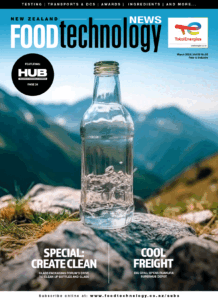
By Natalie Martin, 3R Group Materials Innovation Manager
With the phase-out of several packaging options set to begin from the end the year, and continue through to 2023, many in the industry are undoubtedly seeking alternatives.
Given the rate at which consumers and governments are demanding sustainability from packaging, it’s not enough to simply find an alternative which complies with current requirements and call it a job done. Thought must be given to what impacts any alternative will have, as these might well be ruled out in the future.
This is where a life cycle analysis (LCA) can be invaluable.
A large part of the reason for the current changes being required is that LCAs weren’t factored into packaging decision in the past. Previously the only consideration was that the packaging performed well and was cost effective.
Today, packaging must be considered in terms of its impacts across its lifecycle; what raw materials are used, how is it manufactured, how will it perform and what can be done with it at end of life. Currently, new regulations are set to take effect which will prevent problematic and difficult to recycle materials from entering the market – things like PVC meat trays, expanded polystyrene food and beverage packaging and oxo-degradable plastic products.
The aim is to promote packaging materials which can be recycled, reused or composted, preferably onshore. While compostable packaging was initially viewed as something of a silver bullet, LCAs have found a number of challenges: no New Zealand standard, a lack of processing infrastructure and concerns around the use of PFAS chemicals.
Food waste has a significant impact on climate change and resource use. The performance of a packaging material in providing adequate shelf life is important to avoid organic waste and maintain food safety standards.
Looking to the start of a material; those made locally or from recycled material, or ideally both, will have a stronger LCA score as they reduce transport emissions and, in the case of recycled material, promotes a circular economy.
For more on LCAs you can check out the Life Cycle Analysis New Zealand website.
Natalie Martin is the materials innovation manager at 3R Group in Hawke’s Bay. She has a background in food technology and over 10 years’ experience in new product development for FMCG and still supports the industry as a consultant. At 3R, Natalie works in new product development for various waste streams, including packaging.


































































































